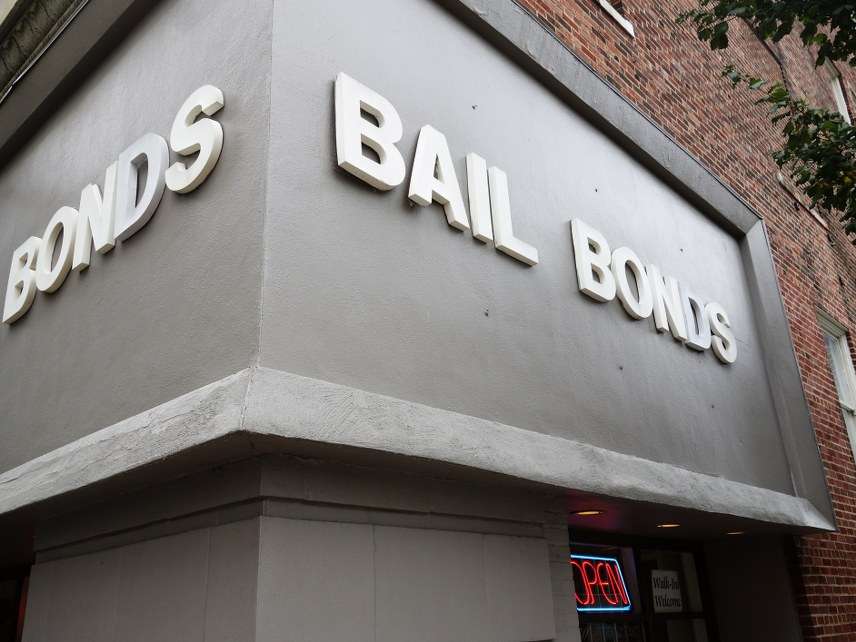Federal Judge Orders San Francisco To Fix Bail System that Keeps Poor People Trapped Behind Bars
Very high cash demands disrupt defendants' lives without improving public safety.

A federal judge has ruled that San Francisco's money-based bail system violates the rights of poor defendants, adding more fuel to a push to significantly reform California's pretrial systems.
On Monday, U.S. District Judge Yvonne Gonzalez Rogers of the United States District Court, Northern Court of California, determined that a system of bail schedules—where people accused of crimes have to pay a dollar amount to be freed based on the nature of the charges—harms poor defendants without actually improving public safety.
Noting that dependency on a cash bail system creates a "Get out of Jail card" dynamic that only works for people who can put up the money (or pay a percentage to a bail bondsman), Rogers has ordered San Francisco to come up with new rules for pretrial release that do not use money as the determining factor.
The case spooled out of the arrest of Riana Buffin in 2015. Buffin was charged with grand theft and conspiracy and ordered to pay $30,000 bail if she wanted to be free while awaiting her day in court. She spent two days in jail before the district attorney's office decided not to charge her. But it was too late—she'd lost her job because she didn't show up for work.
Was Buffin a flight risk or a threat to the community? Did cash bail prevent her from committing additional offenses? Considering that the charges were dropped, the obvious answer is no. The problem with cash bail is that courts don't even consider those questions. In some court systems (such as San Francisco's) defendants are given bail amounts based on a schedule and without first seeing a judge or magistrate. In her ruling on Buffin's case, Judge Rogers noted that a defendant who cannot afford the bail in San Francisco can sit in jail for five days before getting the opportunity to appear in court and beg for freedom.
These kinds of outcomes are why there's been such a significant push to reform pretrial court systems, and to reduce or eliminate entirely the use of cash bail. The intent of pretrial detention is to hold defendants who are likely to flee or commit other crimes before or during their trial, or while negotiating with prosecutors. Yet pretrial detention is now presumptive, and freedom requires cash. As a result, many poor people are left in jail because they're poor, not because they're flight risks or dangers to the community.
This is not the first court ruling against San Francisco's bail system. Last year, a state appellate court ruled that San Francisco's extremely high bail demands were unconstitutional, because they resulted in poverty, not risk, determining whether a person was free from pretrial detention.
California lawmakers passed a bill last year that will dramatically reform the pretrial systems across the state, eliminating the use of cash bail entirely and requiring counties to implement pretrial risk assessments and monitoring systems intended to keep dangerous defendants behind bars, but let everybody else free without demanding that they pay money for that right.
The bail bond industry, which would be devastated (if not completely destroyed in California) by the shift, has fought back, attempting to argue that defendants have a constitutional right to ask for cash bail if that's what they want. The industry has also attempted to convince the public that bail incentivizes defendants to show up for court. They've successfully pushed California's bail reforms onto a voter referendum in 2020, meaning the law that was passed last year is suspended until the voters weigh in on whether to keep it.
But that doesn't stop the courts themselves from making their own changes, and a state referendum cannot stop a federal judge from demanding San Francisco change their system. And as for the claim that money bail makes sure defendants show up for court, Philadelphia's district attorney last year dramatically reduced and eliminated cash demands for a host of criminal charges. A followup study determined that the city did not see a drop in people showing up for court, nor an increase in new crimes caused by people who were free on pretrial release.


Show Comments (7)